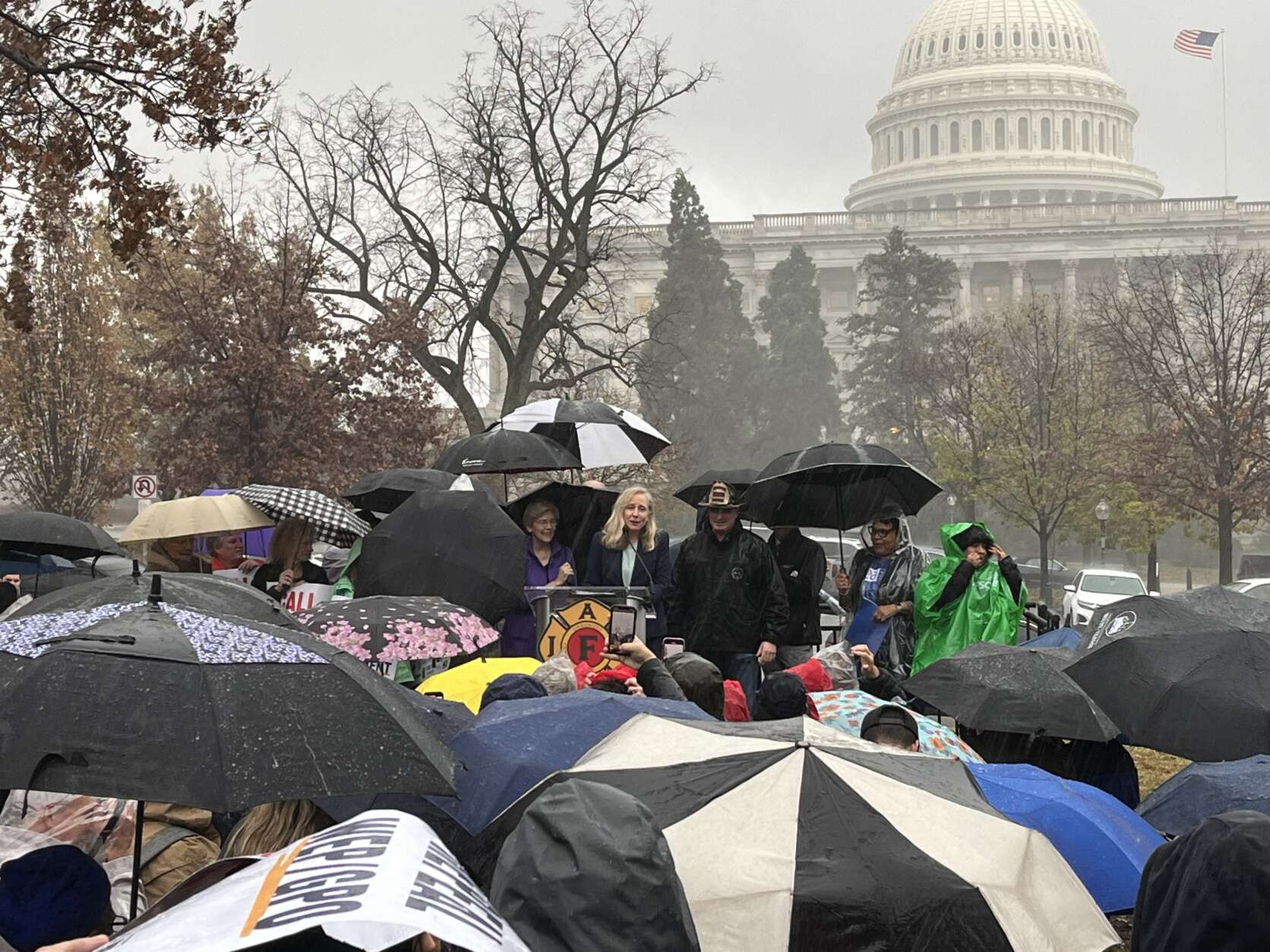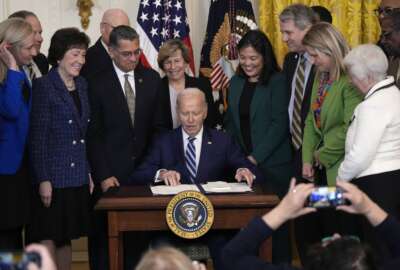At labor rally, Schumer commits to Senate vote on Social Security Fairness Act
The Senate’s Social Security Fairness Act has 62 bipartisan cosponsors. Now pressure is building to push the bill to repeal WEP and GPO to a floor vote.
After growing pressure over the last several weeks, efforts to repeal the Windfall Elimination Provision and Government Pension Offset have gained more traction in the Senate.
During a labor rally Wednesday morning, Senate Majority Leader Chuck Schumer committed to a floor vote on the Social Security Fairness Act, bringing the long-time legislation yet another step closer to its final passage.
“I am here to tell you, we are going to call the vote,” Schumer told attendees of the rally, held in pouring rain Wednesday morning near the Capitol Building. “The Senate is going to take action on Social Security … I’ve got my Democrats lined up to support it. We need 15 Republicans — let’s get them — and we’re going to have the vote. What’s happening to you is unfair, un-American and I will fight it all the way.”
The Social Security Fairness Act has been reintroduced for years, and it gained significant momentum this Congress. For the first time ever, the House passed the bill last month in a vote of 327 to 75. In the weeks since the House’s passage of the bill, advocates and other stakeholders have been urging the Senate to bring the legislation to a floor vote.
Leaders and members from organizations including the AFL-CIO, International Association of Firefighters, American Federation of Government Employees, American Federation of Teachers, and the American Federation of State, County and Municipal Employees attended the rally to call on lawmakers for the legislation’s passage.
“We had a tough battle in the House, but with the support of the Republican leadership, with the fight on the floor of our Democrats, we were able to get it over to the Senate,” IAFF General President Edward Kelly told rally attendees. “Now we have that same fight here, and we need to win that fight.”
Story continues below photo gallery.
The House’s vote on the bill in November came after Reps. Abigail Spanberger (D-Va.) and Garrett Graves (R-La.) — the original cosponsors of the legislation — filed a discharge petition to try to push the bill to a floor vote. It took just over a week to reach the 218 votes needed on the petition.
“Despite the odds, despite the fact that no one has been able to get this bill to a vote before, because of what you did, because of what we did, we have actually got this bill through the House of Representatives with an overwhelming bipartisan vote,” Graves said at the rally. “That’s exactly what we’ve got to do in the Senate.”
The Senate’s companion bill currently has 62 bipartisan cosponsors, which is enough to overcome a filibuster. But prior to Schumer’s promise at the rally this week, the legislation had not seen much movement. Now the pressure is building on the Senate side to push the bill to a vote.
If enacted, the Social Security Fairness Act would repeal the Windfall Elimination Provision and the Government Pension Offset. The WEP and GPO reduce and in some cases eliminate Social Security benefits for public servants who also spent time working in a job that pays into Social Security.
Combined, WEP and GPO affect the benefits of nearly 3 million public servants, as well as their spouses, widows and widowers. Those impacted include federal annuitants in the Civil Service Retirement System, along with other public sector employees such as teachers, firefighters, postal workers and law enforcement officers.
John Hatton, staff vice president of policy and programs at the National Active and Retired Federal Employees Association, said this year’s momentum for the legislation has been the culmination of years of work.
“We had three different committee hearings this year, but then we just were not getting the movement we needed,” Hatton told Federal News Network at the rally. “I think the ability of Graves to get other Republicans on board for the discharge petition and get it on the record for a vote made that success. A ‘sunlight strategy,’ where you force people to put themselves on the record on the vote, as opposed to being bottled up in committee, was something that just worked.”
There’s no indication of how quickly the bill might get taken up in the Senate, but NARFE’s Hatton said he’s hopeful that a vote could happen sooner rather than later.
“If there are objections to the process, that usually slows it down a bit. But the Senate schedule is more difficult to predict,” Hatton said. “It’s been one step building upon another step, upon another step, and it really took a lot of years of advocacy on this.”
The Senate has just a few weeks left to move the Social Security Fairness Act to the floor before the end of the 118th Congress.
“The last stop is to go to the president’s desk and [we will] finally and completely see a righting of a wrong that has impacted so many for so long,” Spanberger said at the rally. “Right now, we’re going to get it done.”
Copyright © 2025 Federal News Network. All rights reserved. This website is not intended for users located within the European Economic Area.
Drew Friedman is a workforce, pay and benefits reporter for Federal News Network.
Follow @dfriedmanWFED








